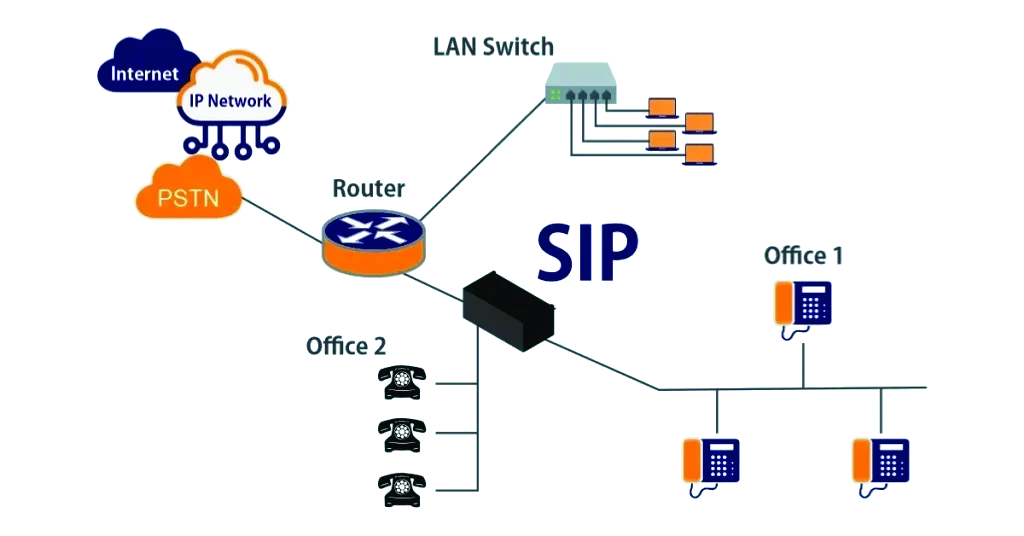Cloud call center software is rapidly becoming the go-to solution for businesses looking to enhance their customer service operations. However, with the growing reliance on cloud technology comes the need to ensure that all operations adhere to the relevant industry regulations. Compliance is essential for safeguarding sensitive customer data, avoiding legal penalties, and maintaining customer trust.
This blog will discuss the importance of compliance in cloud call centers and the best practices to ensure your business stays compliant.
Understanding Industry Regulations for Cloud Call Centers
Data Protection Laws and Regulations
Cloud call center software industry regulations typically revolve around data protection and security. Many businesses operate in sectors where customer data is highly sensitive, such as healthcare, finance, and retail.
In these sectors, cloud contact center software must comply with specific data protection laws, including:
- General Data Protection Regulation (GDPR): This European Union regulation applies to any organization handling the data of EU citizens. GDPR mandates strict data protection rules, ensuring customer consent, transparency, and data minimization.
- Health Insurance Portability and Accountability Act (HIPAA): For healthcare-related businesses in the U.S., HIPAA ensures that patient data is kept confidential and protected. Cloud call center software serving healthcare clients must implement specific security measures to meet HIPAA standards.
- Payment Card Industry Data Security Standard (PCI-DSS): This standard is vital for businesses that handle credit card transactions. PCI-DSS compliance requires call centers to follow rigorous protocols for data encryption, secure storage, and transmission of payment details.
Industry-Specific Compliance Needs
In addition to general data protection laws, industry-specific regulations affect call centers. For instance, financial institutions must adhere to regulations such as the Financial Industry Regulatory Authority (FINRA) standards, while retail businesses must follow consumer protection laws. Understanding and complying with these specific regulations is crucial for companies in these sectors.
Best Practices for Ensuring Compliance in Cloud Call Centers
1. Choose a Compliant Cloud Call Center Provider
The first step in ensuring compliance is selecting a cloud call center provider that follows industry regulations and offers secure solutions. A reputable provider of cloud contact center software will have a clear track record of compliance and should be able to provide certifications such as ISO 27001 for information security management or SOC 2 Type II for data security.
Verify that the provider offers features like end-to-end encryption, secure data storage, and role-based access controls to ensure that sensitive customer data is always protected.
2. Implement Data Encryption
Data encryption is fundamental for maintaining compliance with GDPR, HIPAA, and PCI-DSS regulations. Cloud call center software must offer robust encryption protocols during data transmission (in transit) and when data is stored (at rest). Encrypted communications ensure that even if data is intercepted or accessed unauthorizedly, it remains unreadable.
Encryption helps protect sensitive information like customer names, addresses, credit card details, and medical records, ensuring that cloud contact center software complies with strict regulations.
3. Enable Role-Based Access and Authentication
In compliance-sensitive environments, controlling who can access specific data types is critical. Implementing role-based access controls (RBAC) ensures that only authorized personnel can access sensitive information. Additionally, enforcing strong authentication protocols, such as multi-factor authentication (MFA), can prevent unauthorized access to cloud call center systems.
RBAC allows managers to define different user roles with specific permissions, ensuring that employees can only access the data they need to perform their tasks.
4. Regular Audits and Monitoring
Ongoing monitoring and regular audits of your cloud call center’s operations are essential for compliance. Periodic internal and external audits help identify vulnerabilities and ensure security policies are followed. These audits should focus on data protection, employee access, and call recordings.
Continuous monitoring is essential for detecting and responding to security breaches in real time. Implementing real-time analytics and reporting tools will allow businesses to track compliance status proactively and rectify issues.
5. Educate and Train Employees
Compliance is not solely dependent on technology; human factors also play a significant role. Regular training for cloud contact center software agents, managers, and staff on the importance of data security, industry regulations, and best practices is crucial. Employees must be educated on handling sensitive information appropriately, following compliance procedures, and identifying potential risks.
A well-trained workforce is more likely to adhere to compliance guidelines and reduce the likelihood of data breaches caused by human error.
In a Nutshell
Ensuring compliance with industry regulations in cloud call centers is not just a legal requirement—it’s essential to maintaining customer trust and safeguarding sensitive data. Businesses can stay compliant and mitigate non-compliance risks by choosing a compliant cloud call center provider, implementing robust data security practices, regularly monitoring operations, and educating employees.
Integrating cloud technology into call centers offers numerous benefits, but with these benefits comes the responsibility to protect customer data and follow industry regulations. By adopting these best practices, your business can enhance customer service while ensuring that your cloud contact center software remains compliant and secure.





